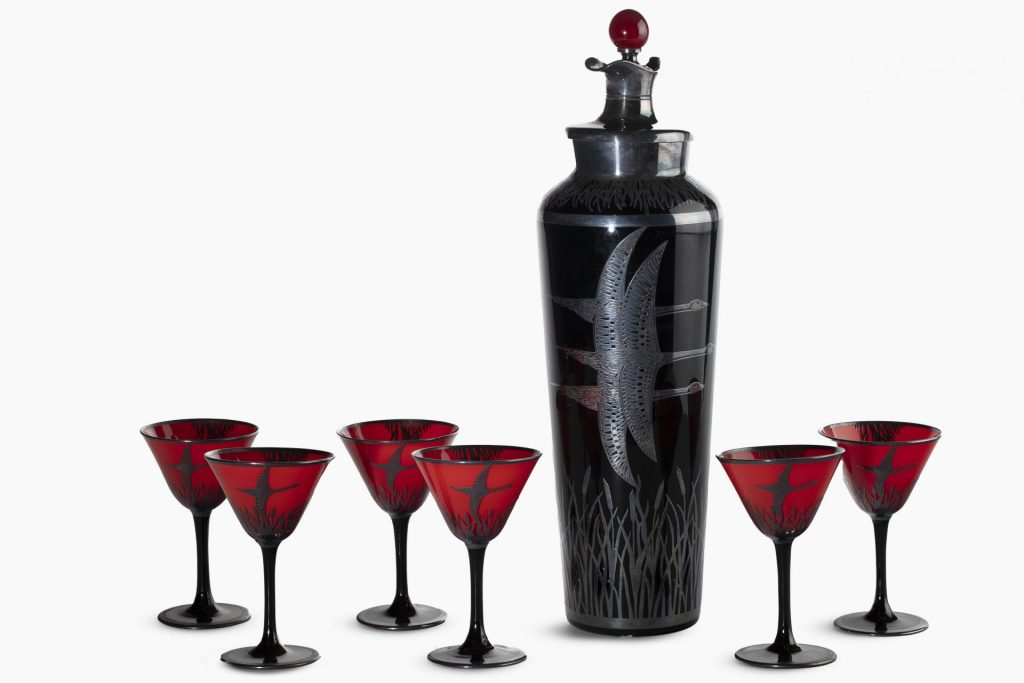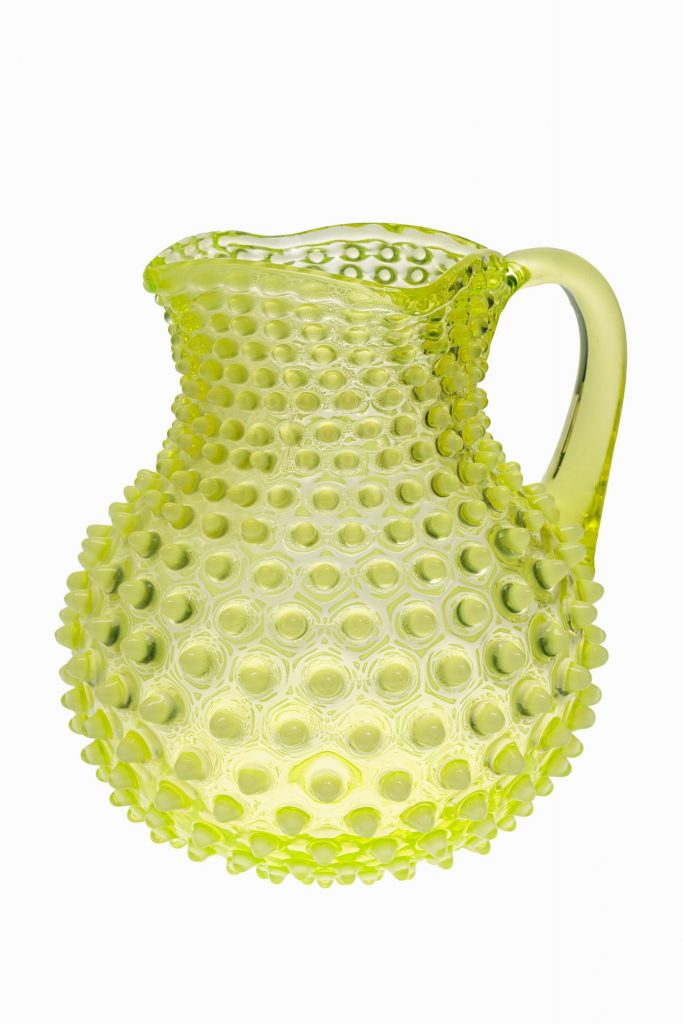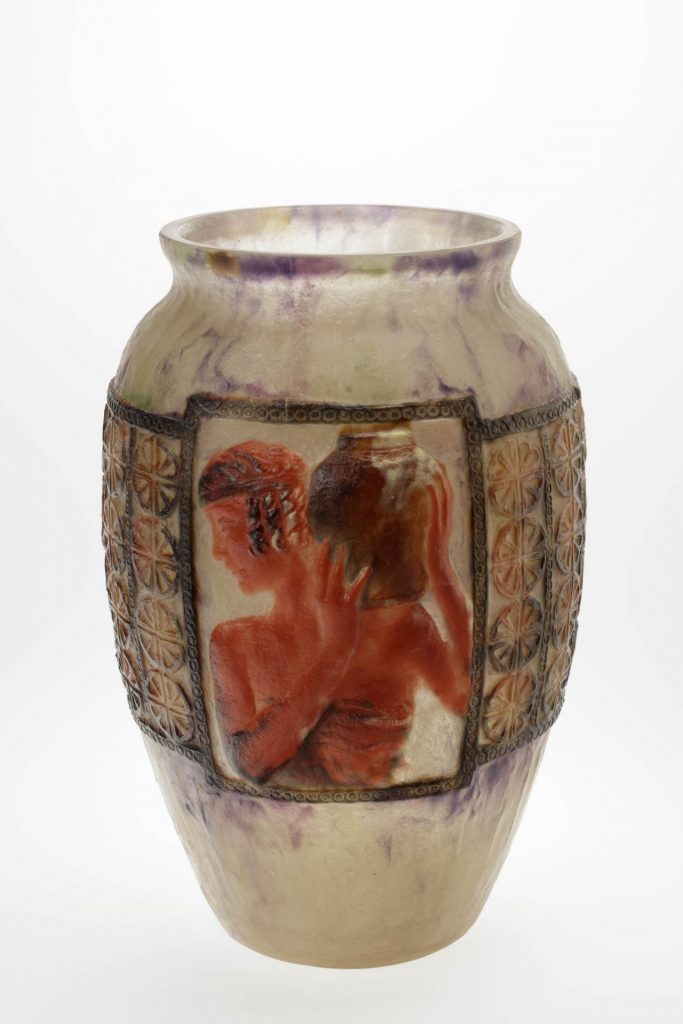
After more than 50 years of vigorous debate led by a religious Temperance Movement, the 18th Amendment was added to the Constitution in 1919, prohibiting the manufacture, sale, and transport of alcohol in the United States. Though it would only last 14 years, the period of Prohibition radically altered the relationship between Americans and alcohol. Rebellious Spirits: Prohibition and Resistance in the South presents a variety of objects ranging from 18th-century porcelain to 20th-century photography to capture the traditions in design and culture that were altered during this tumultuous period of history. Looking closely at the craftsmanship of cocktail shakers, liquor jugs, and cocktail glasses from the period reveals a vibrant story of resilience as Americans improvised methods to continue the production, distribution, and enjoyment of illicit spirits.
The material culture of Prohibition in the South, exemplified by the experiences in New Orleans where intoxicating beverages were never truly underground, underscores the human tendency to adapt and preserve cultural traditions, even during times of strict prohibition. Objects demonstrate how legislation can shape not only consumption patterns but also local economies and social interactions. Featuring collection objects from NOMA and other New Orleans collections and including music from the period, Rebellious Spirits takes you back to a time of innovation and rampant liquor consumption, despite the law.

Cocktail Shaker and Martini Glasses
c.1925–1930
Rockwell Silver Company (established 1907, Meriden, Connecticut, USA)
Free-blown and tooled opaque black non-lead glass with silver overlay
Gift of Melba and Moise S. Steeg, Jr., 89.25.1, .1-.6

”Hobnail“ or “Dew Drop” Pitcher
c. 1890
Hobbs, Brockunier and Company (Wheeling, West Virginia, 1845–1891)
Pressed uranium glass
1996 Decorative Arts Discretionary Purchase Fund, 96.175

Libation Vase
c.1924
Gabriel Argy-Rousseau
“Pate-de-Verre” glass
12 x 8 ¼ in
Museum Purchase, William McDonald Boles and Eva Carol Boles Fund, 2000.198